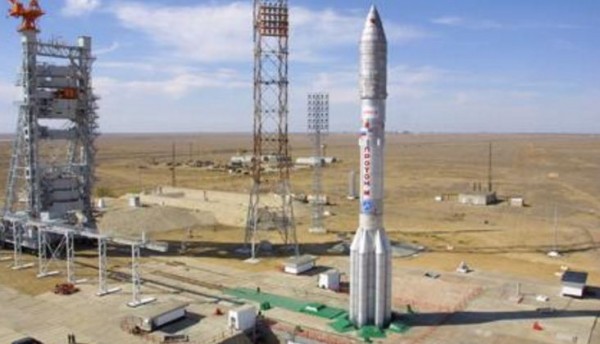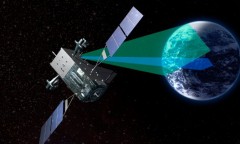By Arthur Dominic J. Villasanta , | April 01, 2017

Proton launch vehicle.
Russia now views SpaceX as a direct threat to the profitability of its space launch industry, one of the few sectors of its economically ravaged economy not hard hit by Western economic sanctions imposed in 2014 by Russia's invasion of the Crimea and attempts to subvert Ukraine.
The fact SpaceX is driving down the cost of launching rockets into space is hurting Moscow where it hurts the most: in its wallet.
Like Us on Facebook
Corresponding Member of Russia's Tsiolkovsky Cosmonautics Academy Andrei Ionin admitted that Russia needs to charge as low as $50 million per launch of its Soyuz and Proton launch vehicles to be competitive against SpaceX.
Ionin said the competitive price for Russian carrier rockets is not $100 million or $80 million, but is $50 million, or 20 percent lower than the price for a Falcon 9 launch. A Falcon 9 launch currently costs a customer some $60 million.
On the other hand, the estimated cost for a Soyuz ST launch is $61 million while the same cost for a Proton/Block DM is $95 million.
Another Russian space pundit, Research Adviser of the Space Policy Institute Ivan Moiseyev, said SpaceX was turning into Russia's main rival in the space launch market.
"Just a few years ago, the market was divided between Europe and Russia whereas today the situation has changed drastically -- the company SpaceX has taken up Russia's place," said Moiseyev.
"There are no accidents. The plans of Falcon 9 launches this year will be comparable with all Russian launches. This is quite a commercially strong blow on our commercial cosmonautics."
The Roscosmos State Corporation for Space Activities (Roscosmos), the governmental body responsible for Russia's space program, is responding to the challenges with available possibilities, said Moiseyev.
"It has announced a considerable reduction in the cost of Proton rocket launches. The commercial price of this rocket's launch is considerably higher than its prime cost and we have the potential for the price cut.
"But customers are giving up our services because the number of payloads (satellites) remains unchanged and does not grow. Correspondingly, a new player on the market snatches away a part of orders."
Plans to develop Proton-Light and Proton-Medium carrier rockets better adapted to market demand are another measure taken by Roscosmos to respond to the challenges posed by SpaceX.
-
Use of Coronavirus Pandemic Drones Raises Privacy Concerns: Drones Spread Fear, Local Officials Say

-
Coronavirus Hampers The Delivery Of Lockheed Martin F-35 Stealth Fighters For 2020

-
Instagram Speeds Up Plans to Add Account Memorialization Feature Due to COVID-19 Deaths

-
NASA: Perseverance Plans to Bring 'Mars Rock' to Earth in 2031

-
600 Dead And 3,000 In The Hospital as Iranians Believed Drinking High-Concentrations of Alcohol Can Cure The Coronavirus

-
600 Dead And 3,000 In The Hospital as Iranians Believed Drinking High-Concentrations of Alcohol Can Cure The Coronavirus

-
COVID-19: Doctors, Nurses Use Virtual Reality to Learn New Skills in Treating Coronavirus Patients









